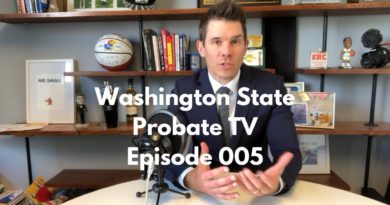Why You May Need a Trust Instead of a Simple Will
When it comes to estate planning, one size never fits all. While drafting a will might seem like the easiest option, there are circumstances where using a trust could better achieve your goals. In this blog, we’ll delve into the scenarios that make a trust a more fitting choice than a simple will.
Achieving Better Control Over Asset Distribution
A trust gives you a greater say in how your beneficiaries receive their inheritance. For example, if you are worried that your 18-year-old might squander their inheritance, a trust can allocate funds to be distributed at different stages of their life. A simple will doesn’t offer this level of control.
Faster Probate Process
A trust also sidesteps the probate process. Assets in a trust bypass probate altogether, meaning your heirs will get access to their inheritance faster. On the flip side, a will has to pass through probate, which could take months, if not years, before the distribution of assets.
Addressing Privacy Concerns
Do you value your privacy and that of your beneficiaries? Trusts don’t become public record, unlike wills that go through the probate process. If discretion matters to you, a trust serves this purpose better.
Providing for Individuals With Special Needs
If you have a family member with a disability, setting up a supplemental needs trust can protect their eligibility for government benefits like Medicaid. A will can’t offer this specific type of protection. Funding a supplemental needs trust at least five years before applying for Medicaid can also shield those assets from being considered for Medicaid eligibility.
Medicaid Planning
Speaking of Medicaid, you might find yourself in a situation where you’ll need long-term care. Medicaid becomes an option when your assets are below $2,000. However, moving your assets into an irrevocable Medicaid trust can help you become eligible for Medicaid, while still allowing your heirs to inherit the principal after your death.
Remember, Medicaid has a five-year look-back period for asset transfers. So, the sooner you act, the better.
Asset Protection
Some trusts can safeguard your assets from creditors and lawsuits. This feature comes in particularly handy if you’re in a profession that’s prone to litigation. Setting up an irrevocable trust keeps your assets safe since they’re technically no longer yours.
Reducing Estate Taxes
If your estate is sizable, an irrevocable trust can minimize estate taxes. Assets in an irrevocable trust are not counted as part of your estate for tax purposes, and they can facilitate discounted transfers. So, not only do you ensure your heirs get their share, but you also cut down on what goes to Uncle Sam.
Minimizing Family Conflict
Family squabbles over inheritances are not uncommon. A well-structured trust can clarify your wishes, reducing the likelihood of disputes among family members. Unlike a will, which can be easily contested, challenging a trust is considerably more difficult.
Unforeseen Circumstances
Let’s face it; life is unpredictable. Should you become incapacitated, you will have a backup plan when you have a revocable living trust. The disability trustee that you name when you create the trust will be empowered to administer the trust in the event of your incapacity.
Flexibility in State Laws
Finally, trusts offer more flexibility if your assets are spread across different states. Each state has its laws regarding wills and probate, which can complicate things. Trusts, however, remain consistent, ensuring that your assets are distributed according to your wishes, regardless of the state.
Take Action Today!
Planning your estate isn’t a one-size-fits-all undertaking. Trusts offer an array of benefits that a simple will can’t provide. Whether you’re aiming to protect your assets, plan for Medicaid, or offer more structured support to beneficiaries, a trust could be the best vehicle to accomplish your estate planning goals.
If you are ready to work with an Oklahoma City estate planning lawyer to establish a trust, we can help. You can call us at 405-843-6100 to schedule a consultation, or you can send us a message through our contact page.
We also have a location in Tulsa. If that office is more convenient for you, you can get in touch with the folks there at 918-615-2700.
After helping his own family deal with a lengthy probate and the IRS following his father’s untimely death in a farm accident, Larry Parman made a decision to help families create effective estate plans designed to reduce taxes, minimize legal interference with the transfer of assets to one’s heirs, and protect his clients’ assets from predators and creditors.
Latest posts by Larry Parman, Attorney at Law (see all)
Story originally seen here






